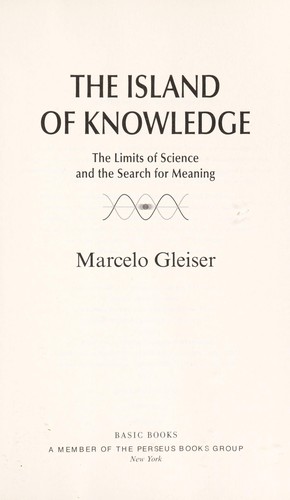Thom reviewed The island of knowledge by Marcelo Gleiser
Review of 'The island of knowledge' on 'Goodreads'
4 stars
This book posits knowledge as an island, with the shore representing the edge of our understanding and the ocean beyond as what we do not (or can not) know. Over the years, our island has gotten bigger, but so has the amount of shoreline.
The first part does a really excellent job of describing how science has expanded the shores of the island, leading right up to strings and quantum theories. In the second part, the author takes a step back and works from atoms up through quantum mechanics. While this section has fewer pages than the first, the text and ideas are considerably more dense - a thorough reading was required. The third part is very brief, and returns to the idea of the island and whether there are parts of the ocean that we can not know - and whether or not this is a worrisome thing. I …
This book posits knowledge as an island, with the shore representing the edge of our understanding and the ocean beyond as what we do not (or can not) know. Over the years, our island has gotten bigger, but so has the amount of shoreline.
The first part does a really excellent job of describing how science has expanded the shores of the island, leading right up to strings and quantum theories. In the second part, the author takes a step back and works from atoms up through quantum mechanics. While this section has fewer pages than the first, the text and ideas are considerably more dense - a thorough reading was required. The third part is very brief, and returns to the idea of the island and whether there are parts of the ocean that we can not know - and whether or not this is a worrisome thing. I believe one could read the first and third sections only to obtain a complete picture.
If you are interested in the aims of science and the big questions of the universe, and you aren't put off by decoherence, nonlocality and quantum weirdness, then by all means read this book.

